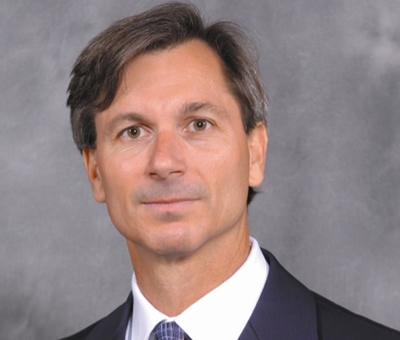
Have you ever wondered what makes very rich people happy?
We get a rather skewed view from the populist press, who enjoy telling tales of conspicuous consumption and bad behaviour. My personal experience is that most wealthy people seem to spend a significant part of their time worrying about how to prevent their children turning into this stereotype, whilst simultaneously wanting to give something back to the world that has treated them so well.
I was discussing this topic with David Giampaolo, who is a successful entrepreneur turned investor and mentor – a way of life that he finds intensely enjoyable.
David’s entrepreneurial career began mowing lawns in Florida. He then set up a small gym – which grew into a large one, and ultimately into Fitness Holdings Europe, which he sold in 1999 during a stock-market boom (remember them?).
Next, he joined Pi Capital, a group of like-minded people all looking to invest in up-and-coming companies. Pi Capital is now a group of 300 people, an interesting combination of self-made millionaires and top FTSE executives, who meet on a regular basis to hear presentations from the great and the good on a wide variety of subjects.
Philanthropy is a common topic, but another focus of the meetings is what might or might not make a good potential investment for the members, who opt in on a deal-by-deal basis. ‘Good’ is not just defined as financially rewarding, but satisfying: the investor can really make a difference to the company into which he or she is buying.
This seems to be how wealthy people really enjoy themselves, by actually still doing things in a business context. They have to learn not to be too ‘hands-on’ as this will inevitably lead to conflict with the entrepreneurs. But they can still be involved in their own way. It could be improving the systems of the business, suggesting potential executives from their personal networks, setting up deals with their high-profile contacts – whatever they personally most enjoy doing.
This is exactly the kind of ‘angel’ investor an entrepreneur needs; someone who will take an active interest in the business, rather than turn up once month for a board meeting in search of the return on their cash.
If you are missing your profit forecasts, then you probably have a Sales Director or a Finance Director out of their depth (or both). If this is one of your co-founders, then the issue is personal as well as business-related. An external investor with real hands-on experience will usually have experience of ‘letting go’ someone who they were close to, so can advise on the best way to do it.
External investors also provide a necessary check and balance for the business itself. Most entrepreneurs want to have fun first and make money second; an angel investor will understand this and keep this under control.
The ideal investor sticks with an entrepreneur, preventing them from getting carried away with unrealistic ideas but at the same time keeping their enthusiasm alive (and focused on the core business, where it belongs). They truly merit the term ‘angel’.
David Giampaolo previously founded, built up and sold several businesses and health club chains in the US and UK. In 2002 he led a management buy-in of Pi Capital and became the CEO and a major shareholder.
He remains active in several other business interests, including having played a leading role in assisting BC Partners in their September 2005 buy-out of Fitness First, the world’s largest health and fitness group. He remains on the Board of Directors of Fitness First and numerous other UK and US companies. www.picapital.co.uk
This article is a chapter from ‘This Is How Yoodoo It’ – a collection of Financial Times columns written by Mike Southon. You can buy this book in hard copy and in Kindle version here: http://tinyurl.com/YoodooBook




